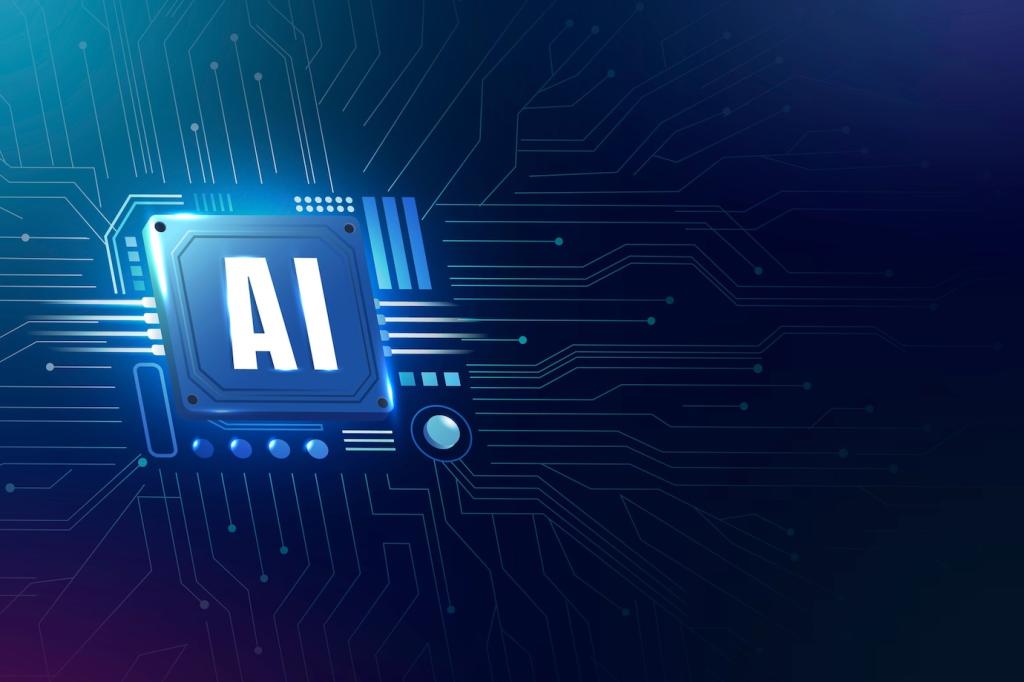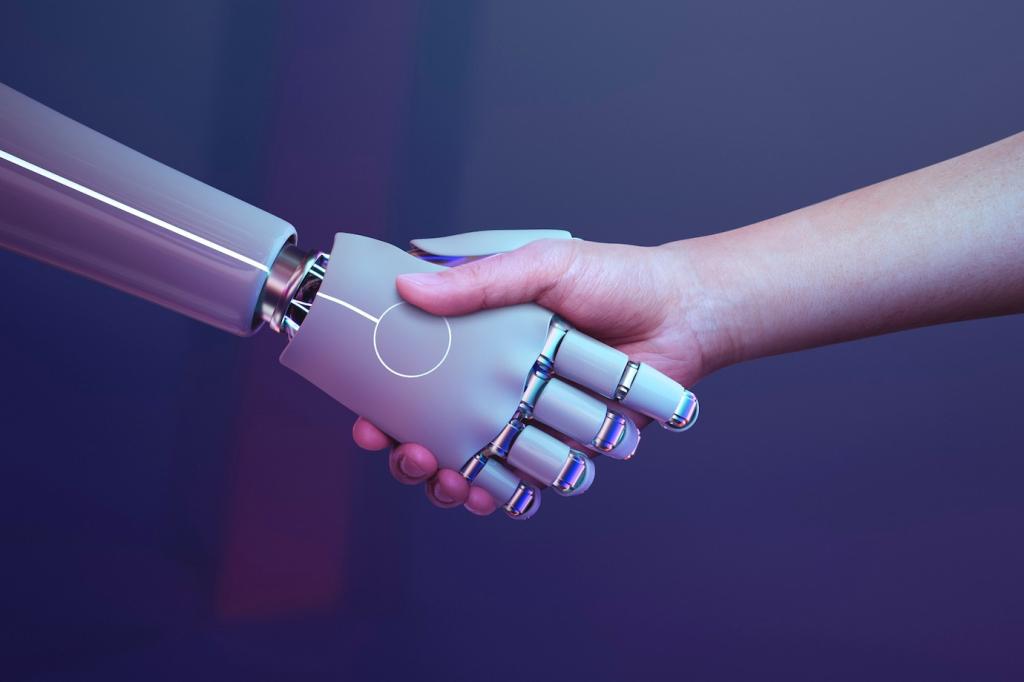
AI Transformations in Healthcare by 2025
The accelerating integration of artificial intelligence (AI) into healthcare systems worldwide is paving the way for a revolution by 2025. With advances in data processing, machine learning, and robotics, AI is reshaping every area of patient care, from diagnosis to treatment, management to prevention. These transformations promise improved accuracy, efficiency, and accessibility for patients and providers alike, addressing longstanding challenges while unlocking new possibilities. The following sections explore the major domains of AI-driven healthcare advancement that will define the industry’s future by 2025.
AI-powered imaging interpretation is revolutionizing radiology and pathology. Deep learning algorithms can sift through complex scans, such as MRIs or CTs, identifying tumors, lesions, or anomalies with remarkable speed and consistency. These systems learn from millions of images, detecting patterns imperceptible to the human eye, leading to earlier and more accurate disease identification. By 2025, the majority of imaging workflows will include AI-based second reads, reducing oversight, streamlining workflows, and enhancing patient outcomes through timelier interventions.
Enhanced Diagnostic Precision
Personalized Treatment Strategies
01
Integrating genetic and genomic data into clinical decision-making has always been complex due to the sheer volume and intricacy of the information. AI elegantly manages this complexity, rapidly analyzing genomic data to identify mutations or risk alleles with clinical significance. This capacity enables the development of highly specific therapeutics, susceptibility assessments, and mitigation strategies, all customized to the individual. By 2025, routine care for many conditions will be informed by AI-powered genomic insights.
02
AI-powered monitoring tools enable the dynamic adjustment of treatment protocols in real-time as patients respond to therapies. For example, machine learning models can analyze ongoing data from wearable devices, lab tests, and physician notes to recommend dosage changes or alternative therapies. These adaptive protocols maximize efficacy, minimize side effects, and help avert complications. They also empower clinicians with actionable insights, helping them keep pace with the continually evolving health status of their patients.
03
Pharmacogenomics has shown that individuals can respond very differently to the same medication. AI platforms integrate clinical and molecular information to predict how each patient is likely to metabolize and respond to specific drugs, reducing trial-and-error prescribing. This approach minimizes adverse reactions, enhances therapeutic outcomes, and supports the rapid identification of the drugs best aligned to each patient’s profile. By 2025, AI-driven drug response predictions will be standard across many therapeutic areas.
Revolutionizing Patient Engagement
AI-powered virtual care solutions, including chatbots and intelligent triage tools, have made remote consultations more accessible and efficient. Patients can describe their symptoms and receive immediate, AI-guided recommendations or escalation to human providers when necessary. These technologies reduce wait times, decrease unnecessary in-person visits, and ensure that medical resources are better aligned to genuine patient need. In 2025, seamless AI-driven virtual care will be a primary entry point into healthcare for millions globally.
The proliferation of digital health assistants, powered by AI, is helping patients manage everything from appointment scheduling to medication adherence. These assistants deliver tailored reminders, provide follow-up instructions, and answer health queries in real-time based on patient-specific information. This personalized engagement fosters better compliance, reduces missed appointments, and supports ongoing wellness between clinical encounters. By leveraging patients’ unique contexts, AI-driven health assistants are key to ensuring continuity and quality of care.
AI-driven symptom checkers allow patients to assess their health concerns anytime and anywhere, offering recommendations for self-care, over-the-counter remedies, or guidance to seek immediate medical attention. The intelligence behind these tools constantly evolves through real-world feedback, improving accuracy and relevance over time. This not only empowers patients with actionable insights but also helps avoid unnecessary emergency visits and enables earlier intervention for serious issues. Intelligent symptom assessment is rapidly becoming an integral component of patient engagement strategies worldwide.
Streamlining Administrative Operations
Automated Medical Coding and Billing
Medical billing and coding are notoriously time-consuming and error-prone, contributing to administrative burden and lost revenue. AI systems can now accurately interpret clinical documentation, assign diagnosis and procedure codes, and submit claims in compliance with complex payer requirements. With continual learning from millions of cases, these AI tools help minimize claim denials, optimize billing outcomes, and ensure providers are appropriately compensated for their services, all while enhancing data security and compliance.
Intelligent Scheduling and Resource Planning
AI-driven scheduling tools optimize appointment bookings, staff rosters, and resource allocation based on patterns of demand, provider availability, and patient needs. These systems can anticipate surges, minimize idle time, and ensure that facilities run at peak efficiency—even adjusting in real-time to unexpected changes such as staff absences or patient cancellations. Effective use of intelligent resource planning eliminates bottlenecks and reduces wait times, leading to better patient satisfaction and more effective use of healthcare assets.
Workflow Automation
Beyond individual tasks, AI is orchestrating complex workflows—such as patient admissions, discharge planning, and interdepartmental communication. Routinized tasks like data entry, prescription fulfillment, and medical record updates are increasingly managed by machine learning algorithms, ensuring accuracy and speed. By delegating repetitive chores to AI, clinical and clerical staff are freed to focus on direct patient care and higher-level decision-making. This systemic workflow automation will be a defining feature of efficient, adaptive healthcare organizations by 2025.
Previous slide
Next slide

AI-Driven Molecule Discovery
AI algorithms are now capable of predicting the biological activity, safety, and efficacy of millions of potential chemical compounds in silico, accelerating the process of drug discovery. This ability reduces the number of compounds that need to be synthesized and tested in the laboratory, identifying highly promising candidates quickly. With AI, research teams can explore novel mechanisms of action and repurpose existing molecules for new indications, dramatically increasing the pace of innovation.
Optimizing Clinical Trial Design
AI is transforming clinical trial design by helping researchers identify ideal participants, optimize protocols, and predict patient responses. Machine learning models analyze historical trial datasets and real-world evidence to refine inclusion criteria and monitor ongoing progress, reducing dropout rates and improving study validity. By simulating trial outcomes before initiation, AI helps design smarter, more efficient studies that bring safer, more effective treatments to market sooner.

Smart Wearable Integration
Smart wearable devices, equipped with sophisticated AI algorithms, can monitor vital signs, detect arrhythmias, and track disease progression in real time. The data is instantly analyzed by AI, alerting care teams or patients at the first sign of trouble. This enhances both acute and chronic disease management, ensuring timely interventions even when patients are far from healthcare settings. The integration of wearables with AI not only supports personalized care but also provides clinicians with a continuous, holistic picture of patient health.

AI-Assisted Remote Consultations
Telehealth platforms bolstered by AI can triage patients, extract essential information, and support remote providers in making clinical decisions. AI tools analyze patient-reported symptoms, visible signs, and background data prior to and during virtual visits, providing a structured foundation for provider assessment. This ensures comprehensive evaluations, appropriate referrals, and reduces missed diagnoses, making telehealth a more reliable and integral part of modern healthcare delivery by 2025.

Proactive Chronic Disease Management
Chronic conditions such as diabetes, heart failure, or COPD require constant monitoring and timely adjustments in care. AI-enabled remote monitoring systems flag concerning trends in patient data, recommend modifications, and even initiate follow-up outreach. This proactive support enables earlier interventions, reduces emergency visits, and helps patients maintain better long-term health. By 2025, AI-driven remote management will be the cornerstone of effective chronic disease programs worldwide.
